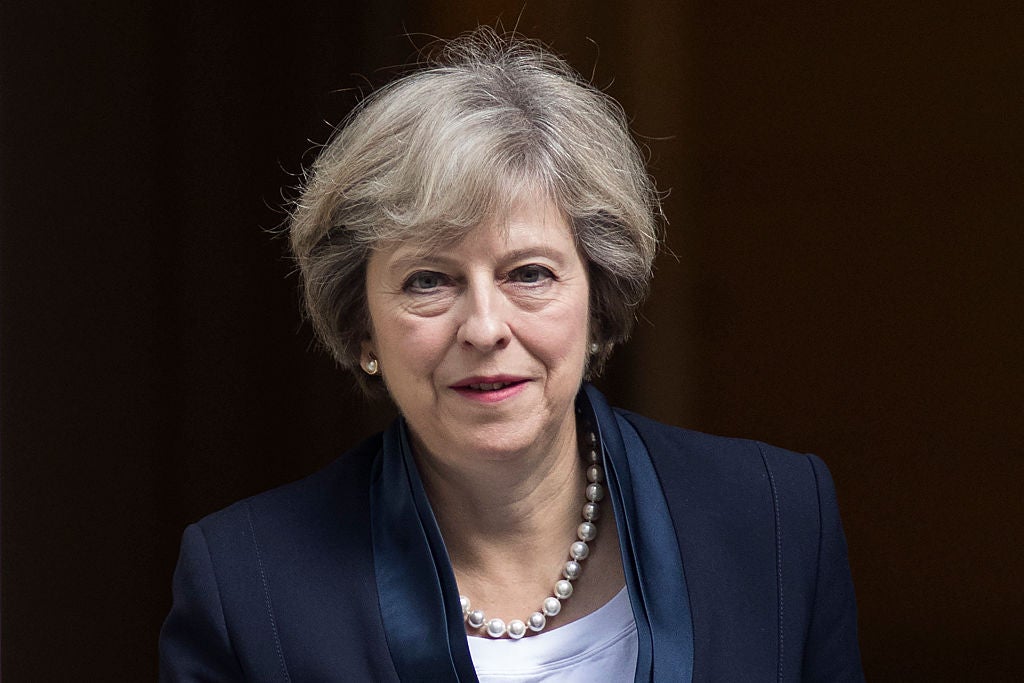Theresa May forced into first Brexit U-turn by Labour and Tory rebel MPs
The Prime Minister has given her MPs a way to back an opposition motion on Brexit without opposing her will

Theresa May has been forced to give way in a row with MPs over how much influence Parliament has over her Brexit plan.
The Prime Minister was effectively pushed into allowing Tory MPs to vote for a Labour motion calling for greater scrutiny of her Brexit proposals, after it became clear some were planning to do so anyway.
The Labour motion, demanding that MPs scrutinise Ms May’s negotiating position before she starts withdrawal talks with other EU states, is not binding on the government, but has underlined the weakness of the Prime Minister’s position in Parliament.
Labour heaped pressure on ministers by publishing a list of 170 questions the government should answer about its Brexit game-plan.
Until now, ministers have said they will allow Parliament to play a role in Brexit, but when asked for greater detail on what they will ask for from the EU in talks, have refused to give a “running commentary”, claiming it will undermine the UK’s negotiating position.
But with pressure mounting from critics and business groups for greater certainty on, for example, how much access to the single market Britain wants, Labour seized the political initiative.
The party tabled a motion calling for "a full and transparent debate on the government's plan for leaving the EU; and calls on the Prime Minister to ensure that [the Commons] is able properly to scrutinise that plan for leaving the EU before Article 50 is invoked."
Article 50 of the Lisbon Treaty launches official Brexit talks to determine a new relationship between the UK and the EU, which must completed in a two-year period before British membership ends.

It is unusual for a government to engage with opposition motions, which are normally defeated.
But recent days have seen Tory rebels take to the airwaves to demand a greater scrutiny role for Parliament, including former Attorney General Dominic Grieve, who warned a failure to provide one could bring down Ms May’s government.
Sensing that the Labour motion could today be embarrassingly passed against her will, Ms May decided to act last night, adding an amendment to the motion and giving Tory MPs a way to back it without opposing her.
The Prime Minister’s amendment adds that any scrutiny must "not undermine the negotiating position of the government as negotiations are entered into”.
A Number 10 source said ministers had always been “clear that Parliament has an important role to play, and this motion reflects that.”

Meanwhile a Conservative party spokesman said: "The Prime Minister has been clear that it would not be in the national interest to provide a running commentary as we shape our negotiating strategy, let alone reveal every aspect of it in advance as Labour now appears to be suggesting.”
Either way, the incident highlights that with a working majority of just 17 in the Commons, Ms May cannot act without impunity.
Ahead of the debate on the motion today, Labour’s Shadow Brexit Secretary Sir Keir Starmer said: “We are now four months on from the referendum and the government have still not told the British people or Parliament what type of deal they want to negotiate.
"Labour have argued that Parliament must have a say on the basic terms of the Brexit negotiations before Article 50 is triggered, not to frustrate the referendum result, but to ensure that there is rigour and accountability on this vital issue.
"The government's eleventh hour concession on that point is overdue, but greatly welcome. "
Join our commenting forum
Join thought-provoking conversations, follow other Independent readers and see their replies
Comments
Bookmark popover
Removed from bookmarks